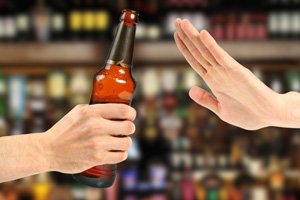
The prevailing idea about addiction is that it’s not a choice, but an illness. By and large, this idea is promoted by the mental health industry, the prevailing academic establishment, organized religions and Alcoholics Anonymous/Narcotics Anonymous.
Yet are they right?
Everyone familiar with an addict or addiction has heard the expression, “I can quit any time.” Interestingly, the clear and obvious implication of this statement is, “I can quit but I choose not to quit, at this time. Because I don’t need or wish to do so.”
In fact, when people addicted to something make this statement, in my experience, they usually resent the implication that they have lost control over their behavior. What they mean to say, and what they sincerely feel is, “I’m in control of my behavior.”
Of course, the conventional addiction expert will reply with a usually patronizing, “No, you’re not in control. Admitting you’re not in control is the first step of getting well.”
It’s no wonder the denial and evasion surrounding addictive behavior goes on for so long.
Human beings, by and large, want to feel that they’re in control of their behaviors. Yet when told they must surrender or give up, everything still healthy within them naturally resists. “What do you mean I’m not in control? What do you mean I’m not responsible for my own destiny?” The best within them screams these pleas for autonomy, pride and dignity.
The proponents of “help” and “treatment” are telling them that they can no longer control their actions. Yet, moving forward, they will have to somehow do so. Even if you’re in rehab for 90 days, you’re still going to leave rehab at some point; and you’ll have to figure out ways to stop. No wonder they’re so terrified. Denial is a mental-emotional smokescreen for avoiding anxiety. Who wouldn’t feel anxious at being told, “You’re completely helpless and powerless over this behavioral habit. Yet you’re going to have to stop anyway.”
It seems to me that the more humane– and more accurate — thing to tell the addict (or oneself, if oneself is the addict) — is the following: “Yes, you’re in control. For whatever reasons, you continue to make choices in your daily habits that are self-defeating and self-destructive. Consider the evidence.”
Does this guarantee the addict will stop? Of course not. Nothing will ever guarantee that any person will ever stop doing anything. But at least it’s speaking the truth. The truth is a necessary condition for any kind of recovery from addiction, even if not by itself always a sufficient one.
It might seem like you’re doing the addicted person a favor by convincing him to “surrender” to what he cannot control. This certainly seems to make some sense prior to entering a 30-day or 90-day rehab program, something most people don’t do because of the cost. However, once you’re out of the rehab program, in each and every moment of your life, you’re constantly confronted with a choice: “To use, or not to use?” Or: “To indulge, or not to indulge?” There’s simply no denying this fact. Yet this is the very fact denied by the professionals, the Twelve Steppers and the others who keep insisting, “You’re powerless over drugs/alcohol. It’s all a disease.”
You can be the most loyal adherent of AA or NA ever known to mankind. It’s still your own choice each time you get yourself to an AA or NA meeting. It’s still your own choice each time you elect not to use or indulge; and each time you do. Proponents of AA/NA become very agitated and even enraged, at times, when it’s pointed out that a majority of people who quit substance abuse do so without these (or even any) formalized programs. But for the sake of argument, let’s assume that every single person who has ever quit an addiction has only done so with the aide of Twelve Steps. Wasn’t it a choice to become and stay engaged with Twelve Steps? And if so, how does this square with the fact that addicts are powerless over their addiction?
It does the addict or former addict no good to claim or pretend that choice is irrelevant to the process. All of us, addicts or not, are the sum total of all our choices, large and small, made over the course of our lives to date. To deny choice is to deny your humanity, and your very identity.
It’s interesting how the mental health business often brings choice into the equation with other matters, but not with addiction. We talk about making good or self-affirming choices in our relationships, with child rearing, in career planning, and the like.
But the moment we’re confronting an addiction, it’s all about illness and “recovery” and any notion of choice is out the window.
To paraphrase the late George Carlin: It’s all b.s. — and it’s bad for you.
Be sure to “friend” Dr. Hurd on Facebook. Search under “Michael Hurd” (Rehoboth Beach DE). Get up-to-the-minute postings, recommended articles and links, and engage in back-and-forth discussion with Dr. Hurd on topics of interest. Also follow Dr. Hurd on Twitter at @MichaelJHurd1
